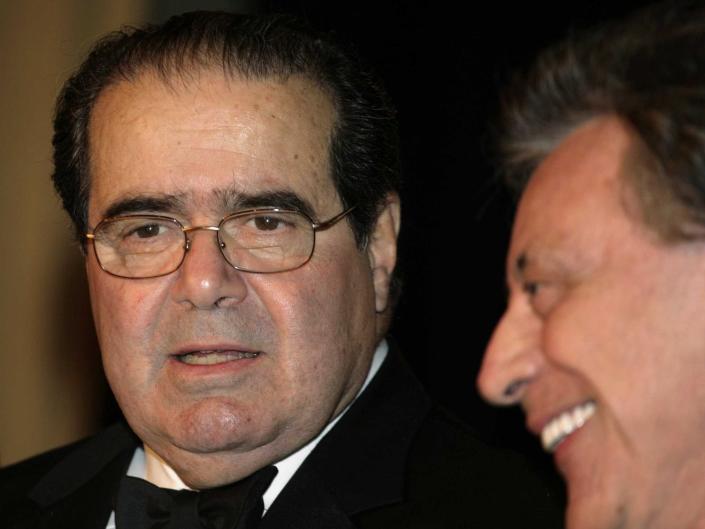Justice Scalia Explains Why A Landmark Civil Rights Law Is 'Racial Entitlement'

Reuters/Yuri Gripas
Antonin Scalia talks to singer Frankie Valli in 2006.
Supreme Court Justice Antonin Scalia made headlines when he called the Voting Rights Act a "racial entitlement," and now he's revealing the rationale behind that inflammatory comment.
The high court is currently reviewing Section 5 of the VRA, which requires states with histories of discrimination against minority voters (mostly in the South) to get permission from the federal government before changing their election laws.
The law was passed in 1965 when Southern states used extreme measures to keep blacks away from the polls, including violence, poll taxes, and literacy tests.
Speaking to university students Monday night, Scalia said Section 5 is a "racial entitlement" because the U.S. doesn't take an equal interest in protecting white voters from racial discrimination, the Wall Street Journal's Jess Bravin reports.
The Voting Rights Act of 1965 was meant to be a stopgap measure to respond to racial discrimination but became an "embedded" form of "racial preferment," Scalia told students at the University of California Washington Center.
During oral arguments in February, the Supreme Court's conservative wing seemed intent on striking down the VRA. Justice John Roberts suggested Section 5 implies the federal government doesn't trust the South not to be racist.
The law's opponents say it's no longer necessary in a post-Jim Crow era. Supporters of Section 5 say the measure is crucial to stop gerrymandering, voter ID laws, and other measures that effectively keep minorities away from the polls.
More From Business Insider

